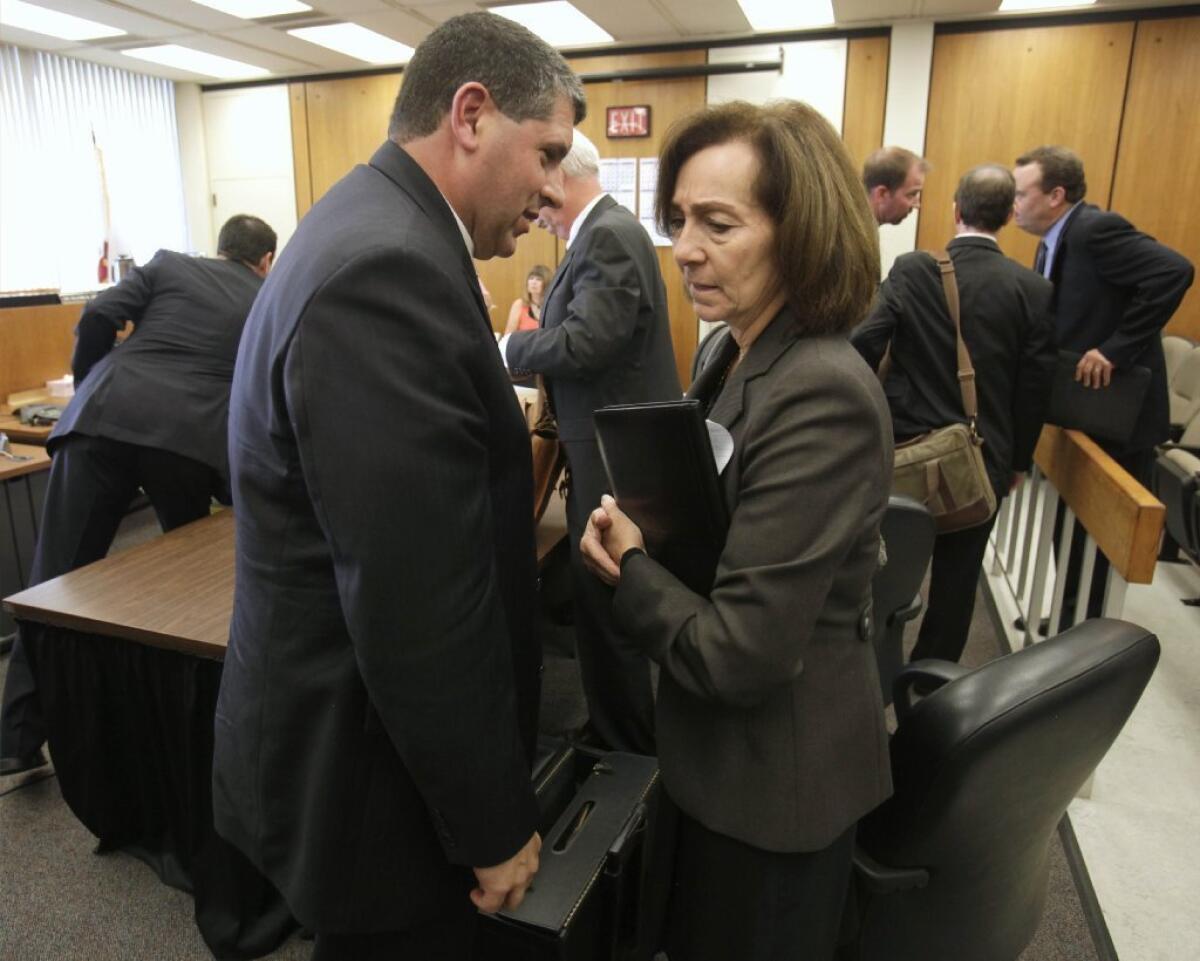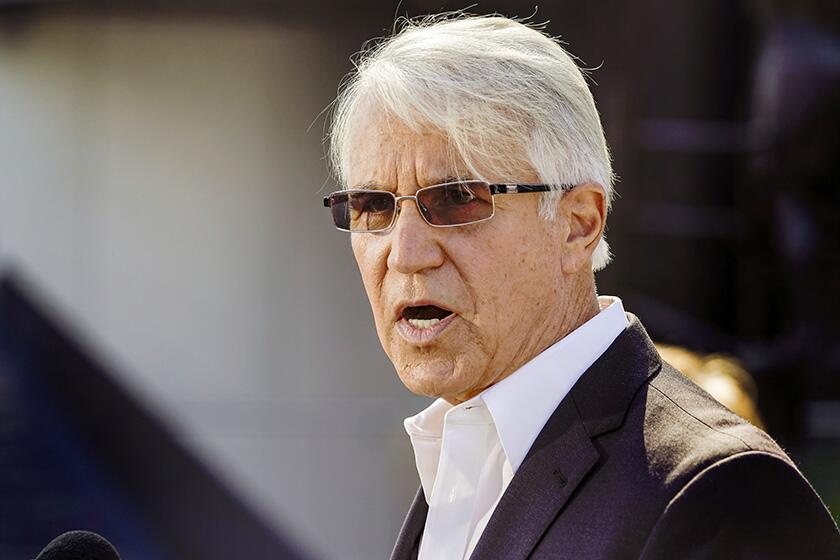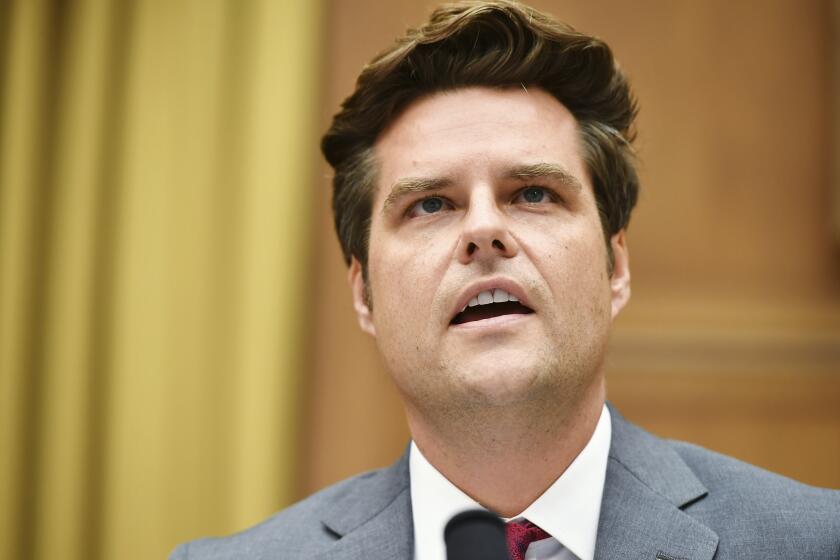Following the money in Campaign 2012

I wish I had been surprised by the news that the wink-and-a-nudge nonprofit that dumped $11 million into California’s election -- in this instance against Proposition 30 -- has ties to the Koch brothers.
But … not.
As all roads once led to Rome, a lot of the millions poured into conservative causes this year lead to the uber-billionaire brothers. California’s Fair Political Practices Commission busted the anonymous Arizona donation, in spite of the group’s court appeal to keep its backers anonymous.
INTERACTIVE: U.S. election results
Read The Times story for the connections, which can be as convoluted as an Agatha Christie whodunit.
Almost all of these groups have blandly, vaguely patriotic-sounding names strung together from apple-pie-and-Mom words that some consultant must pluck like lottery numbers from a hopper full of them: “rights … liberty … jobs … responsible … progress … future … American … majority … freedom.’’
In this case, said the FPCC, the $11 million from the Americans for Responsible Leadership came from Americans for Job Security, and had been funneled through the Center to Protect Patient Rights.
INTERACTIVE: California election results
Thanks to the Citizens United ruling, anonymous political dough is rolling in in unprecedented and scandalous scads, some of it just a few days before the election -- too late, perhaps, for any disclosure of who and what they are before election day, which is no doubt exactly what they’re counting on. This is one of the latest.
As I tweeted earlier, these Russian nesting-doll big-money groups fit the description that Winston Churchill gave to Soviet Russia in 1939: a riddle wrapped in a mystery inside an enigma.
In this unleashed election cycle -- the first presidential election since the Citizens United ruling -- fully 83% of the so-called shadow money has been spent by and for conservatives. This is according to the Center for Responsive Politics, whose executive director, Sheila Krumholz, is the subject of my “Patt Morrison Asks” column this week.
PHOTOS: California voters head to the polls
Even well before Citizens United, she said, politicians and power brokers were not happy at campaign disclosure laws, which ramped up in the mid-1970s after the Watergate scandal, “the watershed event with suitcases replete with cash.” The U.S. Senate, she told me, exempted itself from electronic filing of campaign donations, thus bogging down the process and making it harder for voters to find who gave how much to whom.
Krumholz recalled one campaign that organized donors by the second letter of their last names, just to make it “more difficult to organize the data.” She called that “silly stuff.” It is certainly frat-boy tricks, but they’re frat-boy tricks that try to throw grit into the works of open democracy.
It’s not like the system hasn’t been gamed and soiled before. Political press gangs engaged in “cooping” in the 19th century -- grabbing bystanders and forcing them to vote, sometimes more than once, and alternately threatening them and plying them with liquor and drugs.
Now the pressure is financial, not physical. Historically, “scandals brought reform in campaign financing.” The groundbreaking 1907 Tillman Act banned corporations from giving money directly to candidates and parties, Krumholz told me.
Thereafter, “PACs were born; individual employees of companies band together to contribute.” The reaction? Laws in the 1940s banning direct contributions from labor unions, “so they too could form PACs.” But none of those laws could prevent what she called “money bombs.”
The Watergate era inspired “an awakening for the public about the importance of this issue,” and on it went -- laws, loopholes, court challenges, new laws, action and reaction, up until now, and Citizens United.
Jesse Unruh, the California Assembly speaker and Democratic power broker, was the man who memorably declared that money is the mother’s milk of politics. This country is 236 years old. Isn’t it time we were weaned?
ALSO:
Goldberg: Nate Silver’s numbers racket
Follow Patt Morrison on Twitter @pattmlatimes
More to Read
A cure for the common opinion
Get thought-provoking perspectives with our weekly newsletter.
You may occasionally receive promotional content from the Los Angeles Times.











